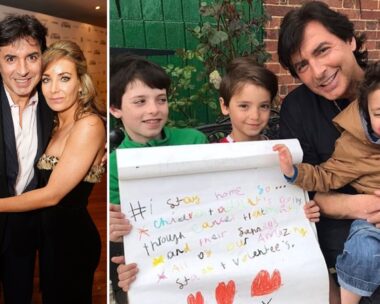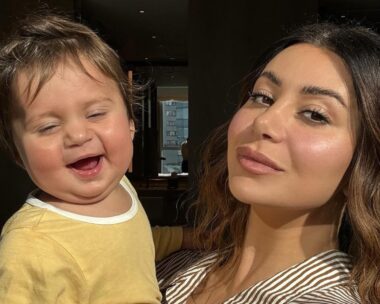Time to celebrate, communicating and sleep
Time to celebrate
Everyone knows baby’s first birthday party is really a celebration for parents. You’ve survived sleep deprivation, nappy rash, teething… and you now have a whole new set of skills. Now is a great time to look back on the amazing journey you’ve been on by revisiting photos and on the momentous first year of parenthood.
No doubt you’re also looking at how big your one year old now is – from a tiny newborn, she’s likely to double her birth weight between four and six months and triple it by the time she’s one. By her first birthday, she’s likely to be about one-and-a-half times as long as she was when she was born.
Communicating
Your baby is now alert and keenly aware of everyday life. She’s eager to join in with whatever’s going on, and her understanding is growing. You may have noticed she can communicate very well, especially at times when she wants you to do something.
Shortly after her first birthday, you may notice your baby starts to voluntarily offer her food and toys to you. This behaviour shows she made the mental leap to thinking of others as initially she believes that everything simply exists to please her. But as she starts to learn empathy, she thinks about someone else’s welfare too, and wants to please them.
Support this skill by playing a game with your child’s favourite toy. Ask her if you can hold it and when she hands it to you say, ‘thank you’ with a big smile and then hand it back to her.

Celebrate making it through your first year of parenthood. (Images: Getty Images)
Sleep
From 12 months old, some babies may begin dropping their morning nap and instead take just one long afternoon nap. As little ones make this transition, which on average is between 15 and 18 months, there will be an adjustment period where your little one might be a little more tired and cranky than usual. You may need to adjust the time of the afternoon nap (moving it up earlier as your baby adjusts) or put your baby to bed at an earlier time if they simply can’t make it through the day without falling asleep.
Often there will be a transition period of several months when your child clearly needs two naps on some days, but one nap on others.
Signs your child is ready to for one daily nap:
• When you put your child down for a nap he plays or fusses before falling asleep, and then takes only a short nap, or never falls asleep at all
• Your child can go for car rides early in the day and not fall asleep in the car
• When your child misses a nap he is cheerful and energetic until the next nap or bedtime
• Your child naps well for one of his naps, but totally resists the other nap



